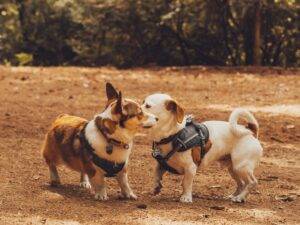
Many people believe that socialization is a process best undertaken in puppyhood, but what about adult four-legged companions? The good news is, it’s never too late to teach an old dog new tricks. Here’s how you can effectively socialize a mature animal.
Socialization involves exposing your companion to various environments, people, and other animals in a controlled and positive manner. It helps them become well-adjusted and reduces fear and anxiety in unfamiliar situations.
Before embarking on this journey, consult a veterinarian to ensure your pal is physically fit for social experiences. Also, ensure they’re up-to-date on vaccinations.
Begin in a controlled setting where you can manage your friend’s experiences. Gradually expose them to different people, places, and animals, rewarding positive behavior with treats or affection.
Obedience and socialization classes are not just for the young ones; they can also be extremely beneficial for adult animals. Check your local listings for classes that are suitable for older participants.
Don’t expect instant transformation. Behavioral changes take time, especially in adult animals that may have already developed some habits. Be patient and consistent.
Sometimes, you may need to enlist the help of a professional animal behaviorist, particularly if your four-legged friend shows signs of severe anxiety, aggression, or fear.
In summary, age is just a number when it comes to socialization. With the right strategy, patience, and love, your adult four-legged companion can become just as sociable and well-adjusted as any young pup. Start now and reap the lifelong benefits of a well-socialized animal companion. 🐾💗